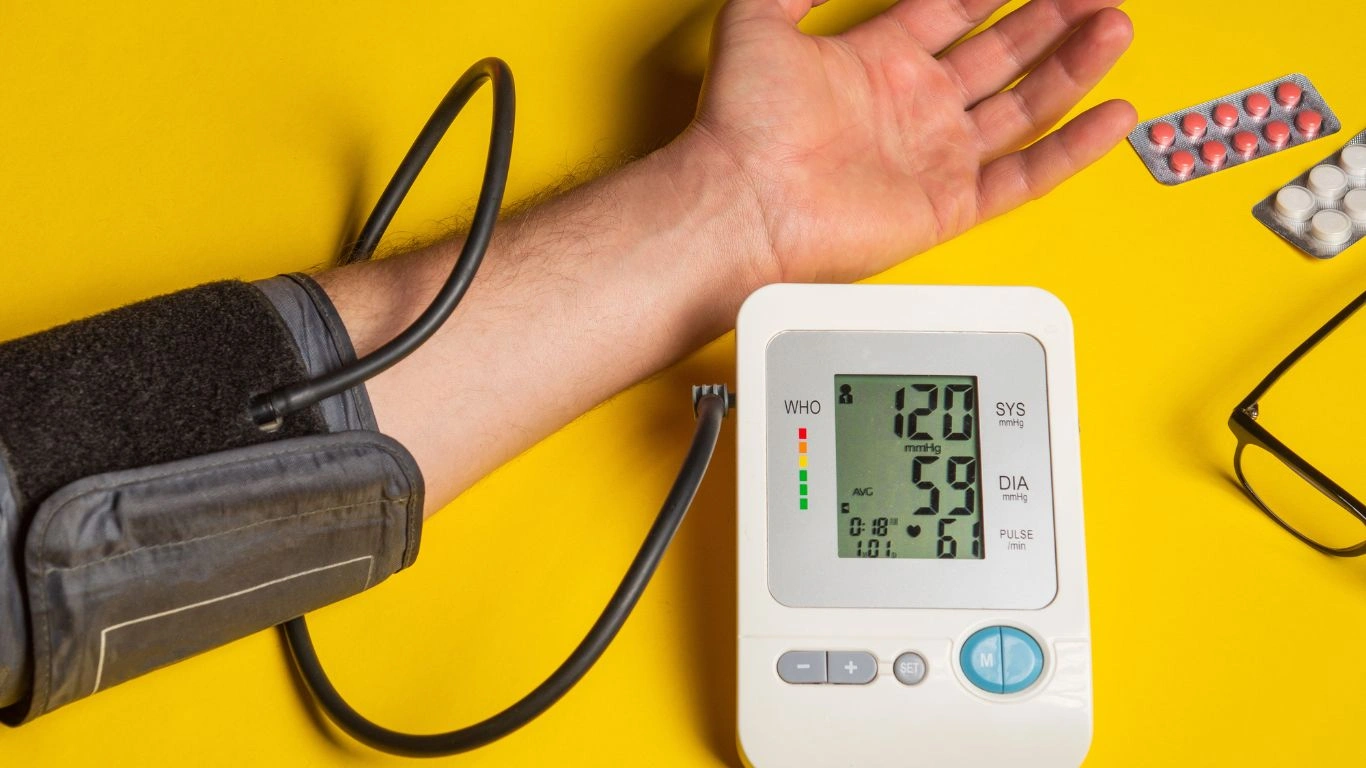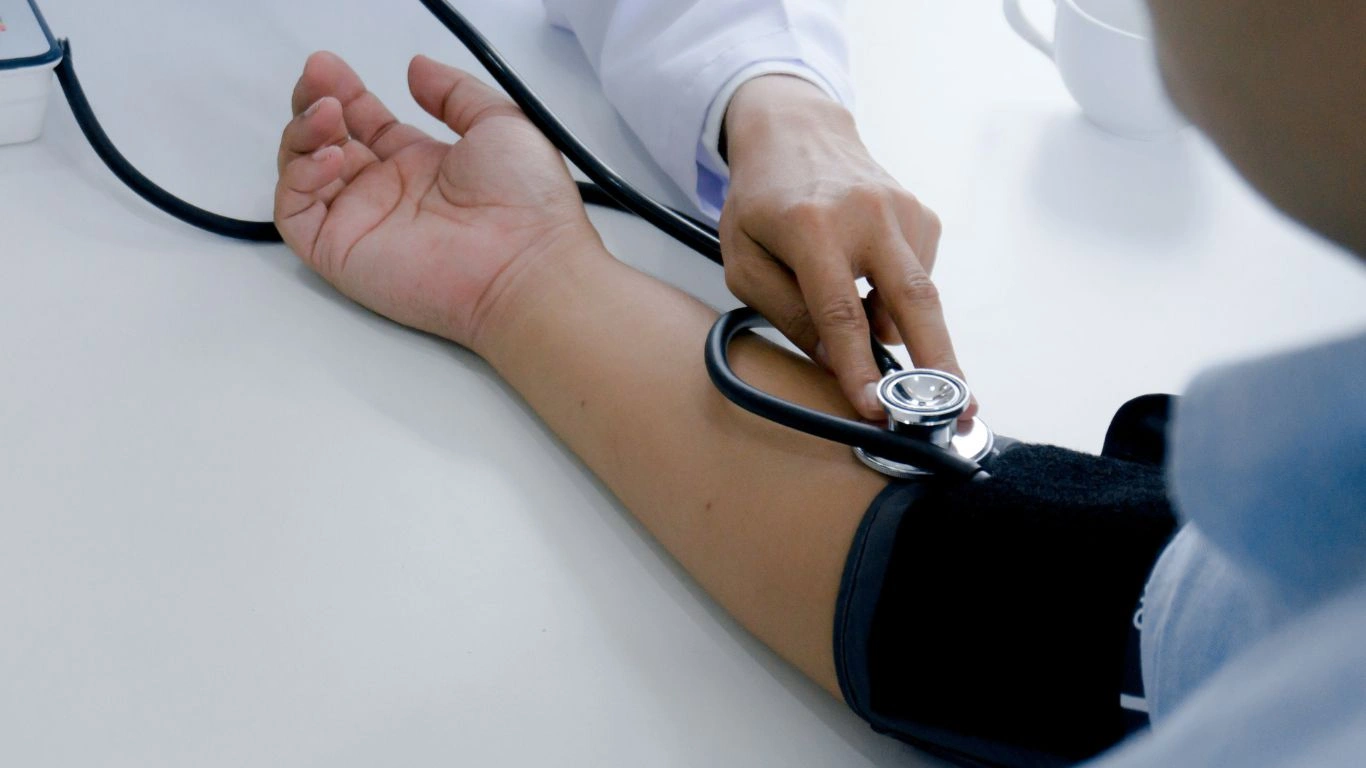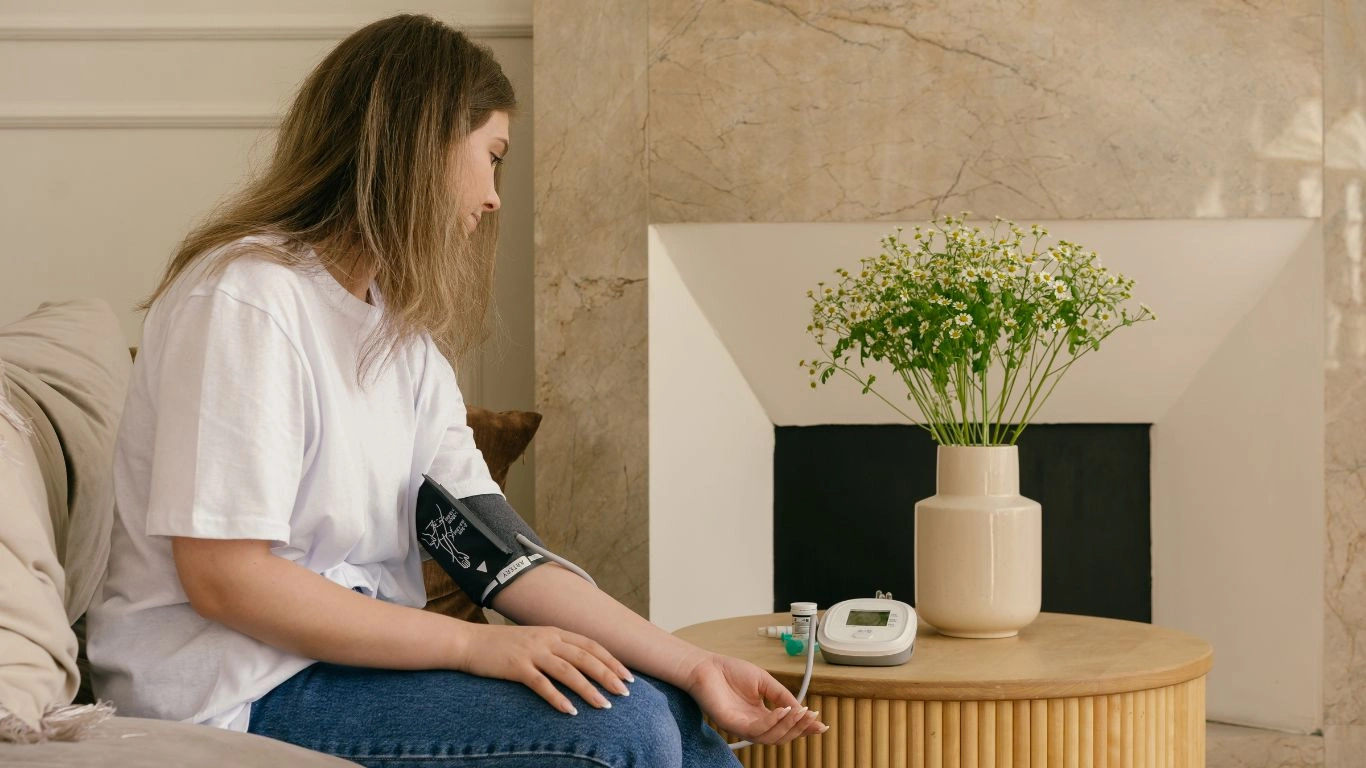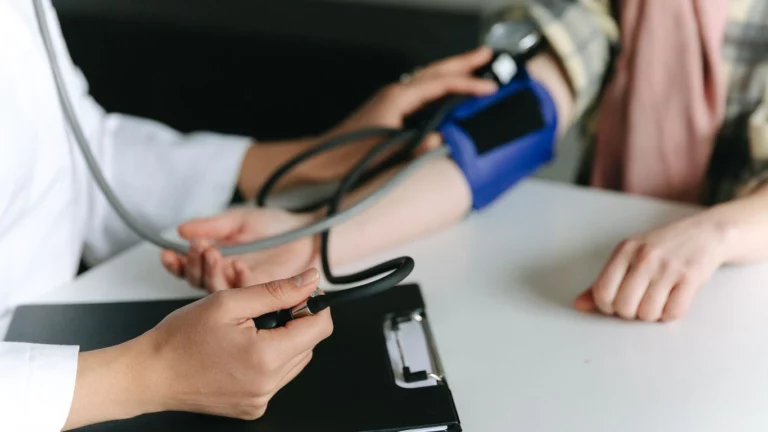How to Deal with Hypertension Burnout and Overcome the Struggle
Hypertension burnout is something I see far too often in my practice as an Internal Medicine physician. It’s that overwhelming feeling many patients experience when managing high blood pressure becomes more than just a daily routine—it turns into a full-on emotional and mental battle. Over time, it can feel exhausting to keep up with the lifestyle changes, medication schedules, and constant monitoring, and that’s when burnout sets in. As someone who has walked alongside patients in their journey to manage their blood pressure, I can tell you that you’re not alone in this struggle. If you’ve found yourself feeling burnt out by the weight of hypertension management, you’re in the right place to find some real solutions.
What Is Hypertension Burnout?

Hypertension burnout is not just a term; it’s a real phenomenon that affects many individuals dealing with chronic high blood pressure. The constant need to monitor blood pressure, take medications, and maintain a strict diet can feel like an endless cycle. Over time, the mental and emotional toll of managing hypertension can lead to burnout—a feeling of exhaustion, frustration, and sometimes, hopelessness.
It often starts subtly. At first, it’s easy to stick to a new medication regimen or diet plan. However, as time goes on, the novelty wears off. The frequent doctor visits, changes in lifestyle, and the sheer burden of managing this chronic condition can start to feel like a heavy weight on your shoulders. I’ve had patients tell me they just don’t know how to keep going when they’re constantly reminded of their condition. This is hypertension burnout, and it’s something that can affect anyone, no matter how disciplined or motivated they are.
Signs You’re Experiencing Hypertension Burnout

Recognizing the signs of burnout is the first step toward addressing it. People with hypertension often feel like they are juggling so many things—medications, lifestyle changes, regular check-ups—and it can all feel like a never-ending task list. Here are some common signs that you may be experiencing hypertension burnout:
- Emotional Exhaustion: Feeling drained, stressed, or overwhelmed by the constant need to manage your health.
- Lack of Motivation: You may feel disinterested or even hopeless about sticking to your routine, whether that’s taking medications, eating healthy, or monitoring your blood pressure.
- Frustration with Treatment: You might be frustrated because you feel like your efforts aren’t making a difference, or you might have side effects from medications that make it hard to stay committed.
- Unfocused Mental State: Mental fog or lack of clarity can set in, making it harder to stay on top of things, which in turn feeds into the burnout cycle.
- Physical Symptoms: You may also experience physical symptoms like fatigue, headaches, or trouble sleeping, all of which can further contribute to the sense of burnout.
If any of these sound familiar, it’s possible that you’re dealing with more than just the physical aspect of hypertension. The emotional toll can be just as significant, and acknowledging it is the first step toward regaining control over your health.
Why Does Hypertension Burnout Happen?

The road to hypertension burnout doesn’t happen overnight. It’s a cumulative process that involves both the physical demands of managing a chronic illness and the psychological strain that comes with it. So why does this happen in the first place?
Constant Monitoring and Adjustment
One major factor contributing to burnout is the constant need for self-monitoring. High blood pressure isn’t a “one and done” kind of condition. It requires ongoing attention—regularly checking your blood pressure, adjusting your medications, and changing your lifestyle based on what your doctor recommends. This can be mentally taxing, especially when you don’t always see immediate results. It feels like the work you’re putting in doesn’t match the outcome you expect, leading to feelings of frustration and helplessness.
The Pressure to Be Perfect
Another significant contributor is the overwhelming pressure to follow a “perfect” regimen. We’re told to eat a low-salt diet, exercise regularly, monitor our blood pressure consistently, and adhere to a strict medication schedule. For some, this feels like an impossible set of expectations to meet. One small slip-up—a salty meal, skipping a medication dose, or missing a check-up—can send a person into a spiral of guilt and stress. This pressure is a huge contributor to burnout because it adds unnecessary mental weight to an already challenging situation.
Isolation and Loneliness
Managing hypertension can sometimes feel isolating, especially if you don’t have a support system in place. Many patients struggle with opening up about their condition, fearing that others won’t understand the emotional toll it takes. This isolation can intensify feelings of burnout, making it harder to stay motivated and focused. In my experience, people often keep their frustrations to themselves, thinking that they are the only ones struggling, which can make it even harder to seek help or find support.
How to Deal with Hypertension Burnout
Dealing with hypertension burnout isn’t about pretending the struggle doesn’t exist. It’s about acknowledging the difficulty and finding strategies to regain control. In the next section, I’ll be diving into some actionable tips that I’ve shared with patients over the years—small but powerful steps that can help you reduce burnout and regain your focus. But before we get into those, it’s important to recognize that burnout is a legitimate concern that deserves attention. You’re not weak or failing because you feel burnt out—it’s simply a sign that it’s time to take a step back and reevaluate how you’re managing your health.
Practical Tips to Manage Hypertension Burnout

Now that we’ve talked about what hypertension burnout is and why it happens, let’s dive into some practical tips on how to deal with it. As someone who’s worked with patients through all stages of hypertension management, I can tell you that even small changes can make a big difference when you’re feeling burnt out. It’s all about finding a routine that works for you and helps alleviate some of the stress and mental load that often comes with managing high blood pressure.
1. Set Realistic Expectations
One of the biggest causes of burnout is setting expectations that are just too high. I see this often: patients will put immense pressure on themselves to follow every instruction perfectly. But here’s the thing—nobody’s perfect. Life happens. A missed dose here, a salty snack there—these things don’t mean you’ve failed. Setting more realistic goals is key. Aim for progress, not perfection.
Start with small, manageable changes. If you’ve been struggling to exercise regularly, don’t commit to an hour-long workout every day. Start with 10 minutes a day and gradually build up. If you’re trying to reduce salt in your diet, aim to cut it down incrementally rather than completely eliminating it overnight. The idea is to keep things flexible and achievable.
2. Find a Support System

One of the biggest mistakes I see in patients who are dealing with burnout is trying to go it alone. The emotional toll of managing hypertension can feel isolating, but you don’t have to go through it by yourself. Whether it’s a partner, a family member, or a group of friends, having a support system can help you feel heard, understood, and encouraged.
If you feel like no one around you truly understands what you’re going through, consider joining an online community or a support group. Sharing your experiences with others who are facing similar challenges can make a huge difference. I’ve seen many patients tell me that just having someone to vent to made their struggle feel more manageable.
3. Focus on Stress Management
It’s no secret that stress plays a massive role in hypertension, and unfortunately, it’s also a major contributor to burnout. When you’re feeling overwhelmed by your hypertension regimen, your body’s stress response can worsen your blood pressure and make you feel even more drained. This creates a vicious cycle that can be hard to break.
One thing I always recommend to my patients is to find some form of stress-relief that works for them. It could be something like meditation, yoga, journaling, or even just going for a walk in nature. In my experience, those who actively work to reduce their stress levels tend to feel more in control of their condition and less burned out by the process.
4. Reevaluate Your Medications
Medication is an essential part of managing hypertension, but it’s not a one-size-fits-all solution. Sometimes, the medications you’re taking can lead to side effects that contribute to your feelings of burnout—whether that’s dizziness, fatigue, or headaches. If you’ve been feeling off or struggling with side effects, it’s important to talk to your doctor about possible adjustments.
I’ve had many patients who initially felt hopeless about managing their hypertension simply because they were dealing with side effects. After revisiting their medication regimen, we often found that there were other options available that worked better for them. If you feel like your medication isn’t working for you or causing negative side effects, don’t suffer in silence. Your healthcare team is there to help you adjust things so that you can feel better, both physically and mentally.
5. Incorporate Mindful Eating Habits

Diet is crucial in managing hypertension, but it can also become a major stressor if you’re constantly worried about what you can and can’t eat. The key here is balance—finding a way to enjoy your meals while still sticking to a heart-healthy plan.
Mindful eating is one approach that’s helped many of my patients reduce the mental burden of managing their diet. Instead of obsessing over every calorie or sodium intake, mindful eating encourages you to focus on how your food makes you feel. When you take the time to savor your meals, chew slowly, and pay attention to your hunger cues, you’re not only eating more consciously, but you’re also reducing the stress that often accompanies dieting.
It’s also about shifting the mindset from deprivation to nourishment. Instead of focusing on what you can’t have, try to focus on the many delicious and healthy foods you can enjoy. I always tell my patients that food isn’t the enemy—it’s about choosing options that fuel your body and support your long-term health goals.
6. Celebrate Small Wins
Managing hypertension is a long-term commitment, and it can feel like an uphill battle. That’s why it’s so important to celebrate the small victories along the way. Maybe you managed to cut back on sodium this week, or maybe you stuck to your exercise routine for a few days in a row. These are wins, and they matter!
By acknowledging your progress, no matter how small, you’re reinforcing positive behavior and building momentum. This can help break the burnout cycle and give you the motivation you need to keep going. In my practice, I’ve seen patients who, when they start acknowledging their small successes, regain a sense of control over their health—and that can be incredibly empowering.
Remember, managing hypertension is not just about the physical aspect; it’s about the mental and emotional components, too. By making small, sustainable changes, finding support, and managing stress, you can overcome the feelings of burnout and move toward a healthier, more balanced life.
Incorporating Lifestyle Changes That Stick

Now that we’ve covered some practical tips for dealing with burnout and managing the emotional side of hypertension, let’s talk about lifestyle changes. These changes are not just “one-and-done” fixes, but long-term habits that can help you feel more empowered in managing your blood pressure. The best part? Many of these tips are simple, and you can start implementing them today!
7. Exercise: It Doesn’t Have to Be Intense
One of the most important things you can do for your blood pressure is exercise. However, I’ve had plenty of patients tell me that they just can’t find the motivation to hit the gym or go for a run. And I get it—exercise can seem daunting, especially when you’re already feeling burned out. But here’s the thing: You don’t need to do high-intensity workouts to reap the benefits for your blood pressure. Regular, moderate activity like walking, swimming, or even yoga can make a huge difference.
In fact, consistent moderate exercise helps improve heart health, reduce stress, and even elevate your mood. It’s all about finding something you enjoy, even if it’s a simple stroll around the block. I’ve seen many patients who started with just 10 minutes a day, and over time, those 10 minutes grew into something they looked forward to. Start small, and you’ll see progress without the burnout.
8. Sleep: Don’t Underestimate Its Power
We often overlook sleep when talking about managing chronic conditions, but let me tell you—sleep is just as important as exercise when it comes to controlling hypertension. Sleep affects so many aspects of your health, including blood pressure regulation, stress levels, and overall well-being. Yet, a lot of people with hypertension experience disrupted sleep, either from stress or medication side effects. This leads to a vicious cycle where poor sleep worsens hypertension, and the worry about hypertension keeps you up at night.
Getting enough quality sleep should be a priority, especially if you’re dealing with burnout. Aim for 7-9 hours per night, and try to keep a regular sleep schedule. If you’re having trouble falling asleep, try incorporating a relaxing bedtime routine—like reading, meditation, or deep breathing exercises. In my experience, patients who focus on improving their sleep quality often see a noticeable improvement in their blood pressure and energy levels.
9. Prioritize Mental Health
Your mental health is just as important as your physical health when it comes to managing hypertension. Stress is a huge contributor to high blood pressure, and if you’re already feeling burnt out, your mental health might be suffering too. It’s important to take time for self-care, and I don’t mean that in a generic, “take a bubble bath” kind of way (though that can help too!). I’m talking about finding ways to truly recharge—whether that’s through mindfulness, therapy, journaling, or simply taking a break from your usual routine.
Over the years, I’ve seen many patients benefit from therapy or counseling, especially when their hypertension burnout stems from deep-rooted stress or anxiety. If you find that your emotional well-being is impacting your ability to manage your blood pressure, it’s worth talking to a therapist. Mental health and physical health go hand in hand, and investing in both will help you feel better overall.
10. Engage in Regular Check-Ups and Stay in Touch with Your Doctor

As an Internal Medicine physician, I cannot emphasize enough how important it is to stay on top of your regular check-ups. Managing hypertension is a lifelong process, and regular visits to your healthcare provider allow you to monitor your progress, adjust medications, and address any new symptoms or concerns.
Moreover, staying engaged with your doctor helps alleviate the anxiety that often comes with managing a chronic condition. Having someone who can answer your questions, offer encouragement, and make adjustments to your treatment plan when necessary can take a lot of pressure off your shoulders. Don’t hesitate to reach out to your healthcare provider if you’re feeling burned out—they’re there to support you, and they’ll appreciate your proactive approach to your health.
References
If you’re looking for more information on hypertension, its treatment, and strategies for managing burnout, I highly recommend checking out these trusted sources:
- National Institutes of Health (NIH)
- Health.com
- Centers for Disease Control and Prevention (CDC)
- American Heart Association
Disclaimer
Before making any changes to your hypertension treatment plan, it’s essential to consult with your healthcare provider. The information provided in this article is for educational purposes only and is not a substitute for professional medical advice. Your doctor can offer personalized recommendations based on your unique health needs and circumstances. Always follow the guidance of your healthcare team and reach out to them if you’re feeling overwhelmed by your treatment or diagnosis.

Dr. Gwenna Aazee is a board-certified Internal Medicine Physician with a special focus on hypertension management, chronic disease prevention, and patient education. With years of experience in both clinical practice and medical writing, she’s passionate about turning evidence-based medicine into accessible, actionable advice. Through her work at Healthusias.com, Dr. Aazee empowers readers to take charge of their health with confidence and clarity. Off the clock, she enjoys deep dives into nutrition research, long walks with her rescue pup, and simplifying medical jargon one article at a time.







